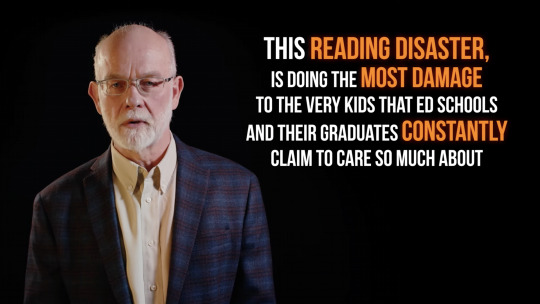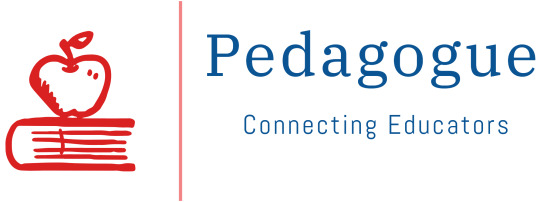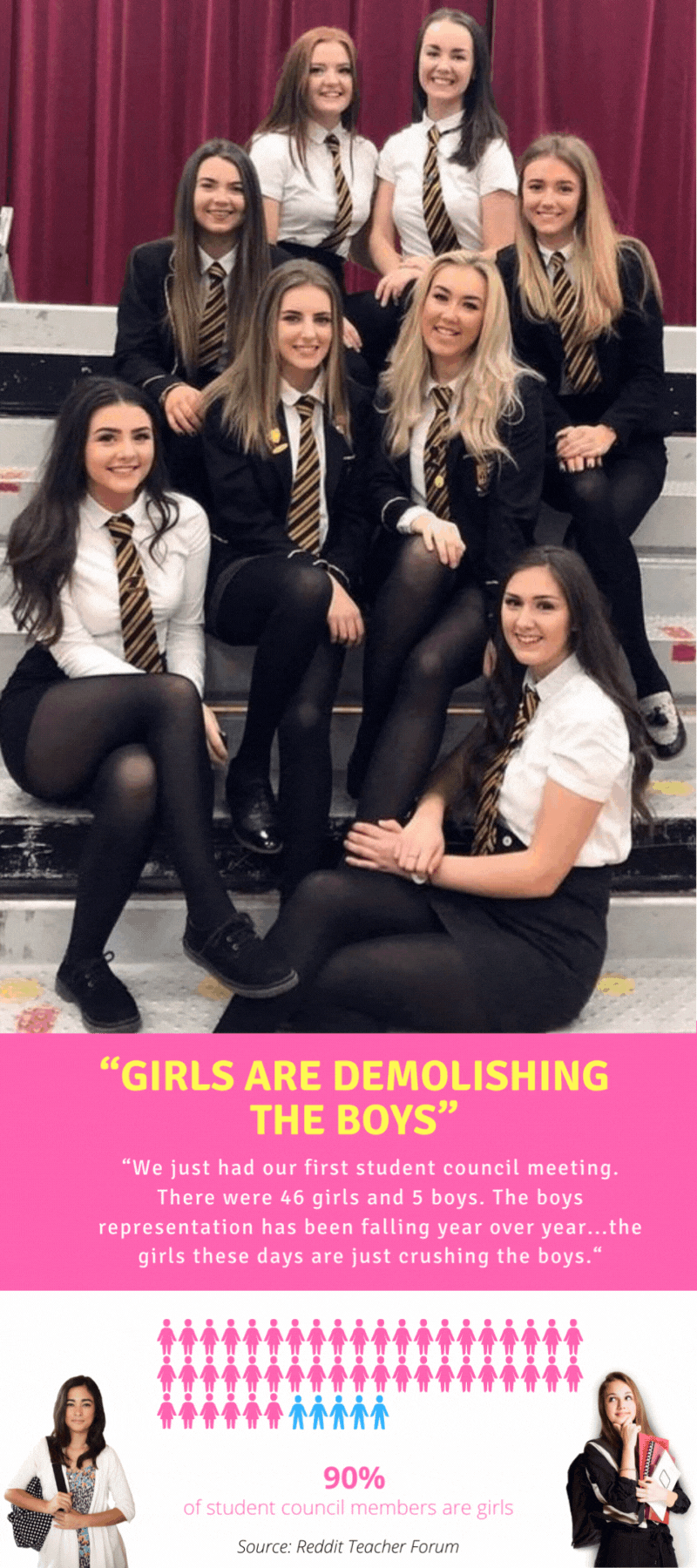#k-12 education
Explore tagged Tumblr posts
Text
Spoilers: the filters did not, of course, block anti-LGBTQIA+ websites. They just made it harder for students to do their homework and look up medically-based sexual health information.
#censorship#banned books#internet filters#CIPA#Children's Internet Protection Act#internet filters don't do a damn thing to enforce it because they're privately made#better oversight is needed#American schools#education#K-12 education
6 notes
·
View notes
Text
I've previously posted these, but I thought I'd bring them back.
The entire "Why Colleges Are Becoming Cults" playlist - or the combined single video - is worth a watch, but there's two episodes of the series that are particularly relevant.
Part 12, "The Reading Debacle" covers the failure of the US education system to teach kids to read, while Part 11, "The Knowledge Gap," includes some primer info regarding how language and knowledge is acquired, which feeds into why the reading failure creates students who are ill prepared for college. For example, the higher education sector spends $7b each year on remedial classes to bring college students up to the level that their K-12 schooling failed to.
Together, these paint a portrait of the failures of US education, particularly in terms of underprivileged and minority students.
And why highly ideological programming which claims to address the underperformance of these underserved students (such as lowering standards) by the same sector that pathologically cannot even teach them to read, should never be taken seriously.
youtube
"The Knowledge Gap" - Dr. Lyell Asher
youtube
"The Reading Debacle" - Dr. Lyell Asher


#Dr. Lyell Asher#Lyell Asher#Why Colleges Are Becoming Cults#higher education#affirmative action#reading#literacy#illiteracy#K-12 education#K 12 education#failure of education#charter schools#religion is a mental illness
13 notes
·
View notes
Text
youtube
Unlock Equity Tools with Dr. Berry as she delves into mastering intersectionality in K-12 education for student success. Discover powerful strategies to promote inclusivity, diversity, and equitable learning environments. Dr. Berry, an expert in education, provides actionable insights to empower educators and administrators. Learn how to bridge gaps, foster understanding, and uplift students of all backgrounds. Don't miss this insightful session on unlocking equity in education. Subscribe for more valuable content on inclusive learning and student success. Watch video now!
#Ep. 56 Unlock Equity Tools: Mastering Intersectionality in K-12 Education for Student Success#EducationForAll#EquityInEducation#InclusiveLearning#StudentSuccess#DiversityInEducation#EmpowerEducators#EquitableLearning#EducationalEquality#UnlockingEquity#BridgeTheGap#TeacherEmpowerment#EducationInsights#StudentDiversity#EducationForEveryone#InclusiveCurriculum#K-12 Education#k-12 education system#equity education#equity in education explained#Youtube
2 notes
·
View notes
Text
MIT student encourages all learners to indulge their curiosity with MIT Open Learning's MITx
New Post has been published on https://thedigitalinsider.com/mit-student-encourages-all-learners-to-indulge-their-curiosity-with-mit-open-learnings-mitx/
MIT student encourages all learners to indulge their curiosity with MIT Open Learning's MITx


Shreya Mogulothu is naturally curious. As a high school student in New Jersey, she was interested in mathematics and theoretical computer science (TCS). So, when her curiosity compelled her to learn more, she turned to MIT Open Learning’s online resources and completed the Paradox and Infinity course on MITx Online.
“Coming from a math and TCS background, the idea of pushing against the limits of assumptions was really interesting,” says Mogulothu, now a junior at MIT. “I mean, who wouldn’t want to learn more about infinity?”
The class, taught by Agustín Rayo, professor of philosophy and the current dean of the School of Humanities, Arts, and Social Sciences, and David Balcarras, a former instructor in philosophy and fellow in the Digital Learning Lab at Open Learning, explores the intersection of math and philosophy and guides learners through thinking about paradoxes and open-ended problems, as well as the boundaries of theorizing and the limits of standard mathematical tools.
“We talked about taking regular assumptions about numbers and objects and pushing them to extremes,” Mogulothu says. “For example, what contradictions arise when you talk about an infinite set of things, like the infinite hats paradox?”
The infinite hats paradox, also known as Bacon’s Puzzle, involves an infinite line of people, each wearing one of two colors of hats. The puzzle posits that each individual can see only the hat of the person in front of them and must guess the color of their own hat. The puzzle challenges students to identify if there is a strategy that can ensure the least number of incorrect answers and to consider how strategy may change if there is a finite number of people. Mogulothu was thrilled that a class like this was available to her even though she wasn’t yet affiliated with MIT.
“My MITx experience was one of the reasons I came to MIT,” she says. “I really liked the course, and I was happy it was shared with people like me, who didn’t even go to the school. I thought that a place that encouraged even people outside of campus to learn like that would be a pretty good place to study.”
Looking back at the course, Balcarras says, “Shreya may have been the most impressive student in our online community of approximately 3,900 learners and 100 verified learners. I cannot single out another student whose performance rivaled hers.”
Because of her excellent performance, Mogulothu was invited to submit her work to the 2021 MITx Philosophy Awards. She won. In fact, Balcarras remembers, both papers she wrote for the course would have won. They demonstrated, he says, “an unusually high degree of precision, formal acumen, and philosophical subtlety for a high school student.”
Completing the course and winning the award was rewarding, Mogulothu says. It motivated her to keep exploring new things as a high school student, and then as a new student enrolled at MIT.
She came to college thinking she would declare a major in math or computer science. But when she looked at the courses she was most interested in, she realized she should pursue a physics major.
She has enjoyed the courses in her major, especially class STS.042J/8.225J (Einstein, Oppenheimer, Feynman: Physics in the 20th Century), taught by David Kaiser, the Germeshausen Professor of the History of Science and professor of physics. She took the course on campus, but it is also available on Open Learning’s MIT OpenCourseWare. As a student, she continues to use MIT Open Learning resources to check out courses and review syllabi as she plans her coursework.
In summer 2024, Mogulothu did research on gravitational wave detection at PIER, the partnership between research center DESY and the University of Hamburg, in Hamburg, Germany. She wants to pursue a PhD in physics to keep researching, expanding her mind, and indulging the curiosity that led her to MITx in the first place. She encourages all learners to feel comfortable and confident trying something entirely new.
“I went into the Paradox and Infinity course thinking, ‘yeah, math is cool, computer science is cool,’” she says. “But, actually taking the course and learning about things you don’t even expect to exist is really powerful. It increases your curiosity and is super rewarding to stick with something and realize how much you can learn and grow.”
#2024#Arts#background#change#Classes and programs#college#Color#colors#Community#computer#Computer Science#course#courses#curiosity#detection#Education#teaching#academics#eyes#Germany#Guides#History#History of science#how#Humanities#infinity#it#K-12 education#Learn#learning
0 notes
Text
How Adaptive Learning Platforms Are Transforming Businesses Globally
In an era where digital transformation is reshaping every facet of our lives, the field of education is no exception. At the heart of this transformation lies adaptive learning technology, a groundbreaking innovation that is not only personalizing the educational experience but also significantly impacting businesses across the globe. Let's delve into what adaptive learning platforms are, and explore how they are driving change in various industries.

What is an Adaptive Learning Platform?
Adaptive learning platforms are advanced educational tools designed to tailor the learning experience to the individual needs of each learner. Unlike traditional educational methods that offer a one-size-fits-all approach, adaptive learning leverages data and algorithms to adjust the content, pace, and style of instruction based on the learner's unique needs and performance.
Key features of adaptive learning platforms include:
Personalized Learning Paths: By analyzing learners' strengths, weaknesses, and progress, these platforms create customized learning journeys that cater to individual needs.
Real-Time Feedback: Adaptive systems provide immediate feedback, helping learners understand and correct mistakes on the spot.
Data-Driven Insights: Educators and businesses gain valuable insights into learning patterns and outcomes, enabling more informed decision-making.
How Adaptive Learning Platforms Are Changing Business Globally
The impact of adaptive learning platforms extends far beyond the confines of traditional education. Here’s how they’re transforming various business sectors worldwide:
1. Corporate Training and Development
In the business world, employee training and development are critical for maintaining a competitive edge. Adaptive learning platforms are revolutionizing corporate training by providing:
Customized Training Programs: Companies can now offer training that is tailored to the specific needs and learning styles of individual employees, leading to more effective skill development.
Enhanced Engagement: Interactive and personalized learning experiences increase employee engagement and motivation, leading to higher retention rates and better performance.
Cost Efficiency: By focusing on the precise needs of employees, companies can reduce the time and resources spent on training programs, leading to significant cost savings.
2. Higher Education
Colleges and universities are also harnessing the power of adaptive learning to enhance educational outcomes. The benefits include:
Improved Student Success: Personalized learning paths help students grasp complex concepts more effectively, leading to higher success rates and better academic performance.
Efficient Use of Resources: Educators can use data insights to identify at-risk students early and provide targeted support, optimizing resource allocation.
Flexible Learning Environments: Adaptive learning technologies support various learning styles and schedules, making education more accessible and accommodating diverse student needs.
3. K-12 Education
Adaptive learning is making waves in the K-12 education sector by:
Differentiated Instruction: Teachers can address the diverse needs of students more effectively, ensuring that each student receives the appropriate level of challenge and support.
Parental Involvement: Platforms often provide parents with insights into their child’s progress, fostering better communication between home and school.
Equity and Inclusion: By adapting to each student’s pace and level, adaptive learning platforms help bridge gaps in educational attainment, promoting equity in the classroom.
4. Healthcare and Medical Training
In the healthcare industry, adaptive learning is proving invaluable for medical training and continuous professional development:
Tailored Learning Experiences: Medical professionals can engage in personalized training modules that address their specific areas of interest or specialization.
Continuous Improvement: Adaptive platforms facilitate ongoing learning and skill enhancement, essential for keeping up with rapidly evolving medical knowledge and practices.
5. Retail and Customer Service
Even in retail and customer service sectors, adaptive learning is making a difference:
Product Knowledge Training: Retail employees receive customized training on product features and sales techniques, enhancing their ability to assist customers effectively.
Customer Interaction Skills: Adaptive platforms help employees develop better communication and problem-solving skills, leading to improved customer service and satisfaction.
The Future of Adaptive Learning
The potential of adaptive learning platforms is vast and still unfolding. As technology continues to advance, we can expect further innovations in AI and machine learning to enhance the capabilities of these platforms. Future developments might include:
Integration with Virtual Reality (VR) and Augmented Reality (AR): Offering immersive learning experiences that adapt in real-time to the learner’s actions and environment.
Greater Personalization: Even more sophisticated algorithms could further refine learning paths, making education and training even more effective.
Conclusion
Adaptive learning platforms are more than just a technological trend; they represent a paradigm shift in how we approach education and training. By providing personalized, data-driven learning experiences, these platforms are helping businesses across the globe achieve greater efficiency, effectiveness, and engagement. As we continue to explore and expand the capabilities of adaptive learning, its transformative impact on industries worldwide is likely to grow even more profound.
Embracing this change can lead to significant advantages in the competitive landscape, making adaptive learning not just a tool for the future, but a critical component of business strategy today.
0 notes
Text
A "market" theory of education
by Lonnie Palmer I was two years into my position as superintendent of schools for the City School District of Albany in April 1999 when I read a blurb in the local newspaper about plans to establish New York State’s first charter school – in our district. It was the first time I’d heard about it. Since my arrival, we’d been busy plugging up financial holes (more than $20 million) in our leaky…

View On WordPress
0 notes
Text
2022-2025学年面向中小学生的全国性竞赛活动名单
序号 竞赛名称 主办单位 竞赛面向学段 自然科学素养类 1 全国青少年人工智能创新挑战赛 中国少年儿童发展服务中心 小学、初中、高中、中专、职高 2 全国中小学信息技术创新与实践大赛 中国人工智能学会 小学、初中、高中、中专、职高 3 世界机器人大会青少年机器人设计与信息素养大赛 中国电子学会 小学、初中、高中、中专、职高 4 全国青少年科技教育成果展示大赛 中国下一代教育基金会 小学、初中、高中、中专、职高 5 全国青少年无人机大赛 中国航空学会 小学、初中、高中、中专、职高 6 全国青年科普创新实验暨作品大赛 中国科协 初中、高中、中专、职高 7 宋庆龄少年儿童发明奖 中国宋庆龄基金会、中国发明协会 小学、初中、高中、中专、职高 8 全国中学生天文知识竞赛 中国天文学会 初中、高中、中专、职高 9 “地球小博士”全国地理科普知识大赛 中国地…
View On WordPress
0 notes
Text
Pedagogue is a social media network where educators can learn and grow. It's a safe space where they can share advice, strategies, tools, hacks, resources, etc., and work together to improve their teaching skills and the academic performance of the students in their charge. If you want to collaborate with educators from around the globe, facilitate remote learning, etc., sign up for a free account today and start making connections.

Address: 910 Goddin St. Suite 401, Richmond, VA 23230
Phone: 601-630- 5238
Website: https://pedagogue.app
1 note
·
View note
Video
youtube
Trigonometry IIT JEE Challenge Series Q4 - log_(1/2) (1/(1+2cos^2A) + 2/...
0 notes
Text
Connie Edberg Copy
[vc_row row_height_percent=”0″ override_padding=”yes” h_padding=”2″ top_padding=”2″ bottom_padding=”1″ overlay_alpha=”50″ gutter_size=”3″ column_width_percent=”100″ shift_y=”0″ z_index=”0″][vc_column column_width_percent=”100″ gutter_size=”3″ overlay_alpha=”50″ shift_x=”0″ shift_y=”0″ shift_y_down=”0″ z_index=”0″ medium_width=”0″ mobile_width=”0″ width=”1/1″][uncode_share…

View On WordPress
#K-12 Education#PreK-12 Education#Native Americans Indigenous People#Minneapolis Interview Project#Minneapolis School Board#American Indian Education
0 notes
Text
CMS MISSION
The mission of Crawford Middle School is to create an environment that inspires lifelong learning, provides ongoing support and prepares ALL students for the future in a global society. About US A common saying around the halls here is "WE ARE ... CRAWFORD!" These words ring loudly because of the sense of pride we have as a school. As faculty and staff, we have come together because of our love for children and our passion and dedication to help our students succeed. We build supportive partnerships with colleagues and have renewed our focus on creating strong partnerships with our students and families as well. We are determined that our kids will succeed, and we're committed to doing whatever it takes. We believe that educators need to meet students where they are and cater to the needs of all students.
1 note
·
View note
Text
How to choose the right LMS for your organization

Understanding the Basics
When it comes to choosing an LMS (Learning Management System) for your organization, it is important to understand the basics of an LMS. An LMS is a software application that is used to create, manage, deliver, and track online learning programs across an organization. It allows you to create and manage online courses, track learner progress, and generate reports on learning outcomes.
Evaluating Your Organization's Needs
Once you understand the basics of an LMS, it is important to evaluate your organization’s needs in order to make the best decision. Consider the size of your organization and the number of learners you need to support. You should also evaluate the types of learning materials you will be using, such as videos, ebooks, or quizzes. Additionally, think about the type of learning experience you want learners to have and whether your LMS should integrate with any other platforms you use.
Related Reading: How to Choose the best LMS Service for Your Organization?
Identifying Features and Functionalities
Identifying the features and functionalities of an LMS is the next step in choosing the right LMS for your organization. Consider the features that are most important to your organization and evaluate how they can help you achieve your goals. Examples of key features include course creation, user management, tracking and reporting, mobile capabilities, and learning analytics.
Finding the Right Provider
Once you have a clear understanding of the features and functionalities you need, you can begin researching LMS providers. Look for providers that have a proven track record of providing reliable services and a good customer support team. Additionally, read reviews of the provider’s services and make sure they offer the features and functionalities you need.
Related Reading: How to Choose the Best LMS Platforms for Business?
Testing and Evaluating
Once you have identified a few potential providers, it is important to test and evaluate the options. Ask for a demo or a free trial period so you can get a feel for the system and see if it’s the right fit for your organization. Additionally, consider the cost of the system and make sure it fits within your budget.
Making the Decision
Once you have tested and evaluated all the options, it is time to make a decision. Make sure to consider all the factors discussed above, as well as any other factors that may be important to your organization. With the right information and a thorough evaluation process, you can make the best decision for your organization.
Conclusion
Choosing the right LMS for your organization can be a difficult process. It is important to evaluate your organization’s needs and identify the features and functionalities you need. Additionally, research and test the various options to ensure you make the best decision. With the right information and a thorough evaluation process, you can make an informed decision that best meets the needs of your organization.
#learning management system#Organizational Learning Management System#k-12 education#higher education#online learning#elearning#education
1 note
·
View note
Text






melanie performing at the trilogy tour in palm desert, california last night
#portals melanie martinez#k 12 melanie martinez#melanie littlebodybigheart#portals#melanie martinez#melaine martinez#melanie martinez edit#crybaby#melanie k12#mel#the trilogy tour#melanie martinez lyrics#melanie martinez gif#melanie icons#melanie#melanie martinez icons#melanie martinez gifs#melanie martinez music#after school ep#k 12 album#k 12 era#k 12 movie#k 12 education#k 12#portalsdeluxe#mm portals#melanie portals#portals album#portals fanart#portal
521 notes
·
View notes
Text
I love living in Washington—I wasn't born here, but my family moved from Oregon when I was in elementary school and I lived in WA until I was nearly 20 and then moved back seven years ago. So a lot of my life has been spent here and what hasn't been spent here has been in Oregon (mostly) or California (two years of grad school).
Obviously I love the Pacific Northwest and I love the West Coast in general, but nothing reinforces this like seeing the reminder I sent to myself to sign up for health insurance, answering a handful of questions, getting immediately approved by the system and picking a plan, and promptly being informed that I now have health insurance with dental, vision, mental health, etc and that my ridiculously low adjunct hell wages means it costs *checks* $0 (even as autumn makes the PNW more beautiful than usual!).
I know it's a very US American problem to consider. But I grew up on the Canadian border, which meant that when my parents went bankrupt from my childhood medical expenses after I hit their insurance's lifetime cap when I was... like, 12, I was entirely aware that Things Don't Have To Be This Way because I had friends and family acquaintances with Canadian citizenship. And meanwhile I have relatives and friends on the US side who have to incorporate health care so much into calculations about what jobs to take, where to live, what the cost of living really is with a medical condition.
Another guy in my department and I were actually just talking the other day about figuring out possible jobs/cost of living calculations not just from reported numbers for a state or city, but about the importance of calculating cost of living for yourself specifically because of health expenses, difficulties of transportation, etc. Like, people talk a lot about how expensive California is and it definitely is, but for me that was significantly offset by the state paying all my medical expenses despite me not even having California residency. The Portland metro area is expensive, but it is entirely possible to never drive anywhere because of good public transit+walkability.
So anyway ... thanks, Washington State, that is a huge load off my shoulders and it makes voting against right-wing bullshit in WA a pleasure as well as a civic duty <3
#fuck those state initiatives btw and good on the state for saying where that money would come from (like k-12 education!!)#anghraine babbles#long post#cascadia blogging#us american blogging#health#medical malfeasance#west coast best coast#borderite blogging#ivory tower blogging
88 notes
·
View notes
Text




You, speak, sour lemonade to me
The bitter taste won't let me be
#spotify#melanie littlebodybigheart#melanie martinez#crybaby#melanie k12#portals#portals album#2016 tumblr#k 12 melanie martinez#k 12 film#k 12 movie#melanie king#k 12 education#k 12#k 12 album#k 12 aesthetic#after school ep#2014 aesthetic#artists on tumblr#after scool era#mm portals#melanie portals#portals melanie martinez#mm3 portals#crybabycore#cry bb#cry baby
75 notes
·
View notes
Text

The tsunami of female power shattered patriarchal constraints, blew right past equality, and rocketed into a new realm of superiority and dominance.
#future is female#girlboss#alpha female#k 12 education#feminism#gynarchy#matriarchy#girls rule#female power
303 notes
·
View notes